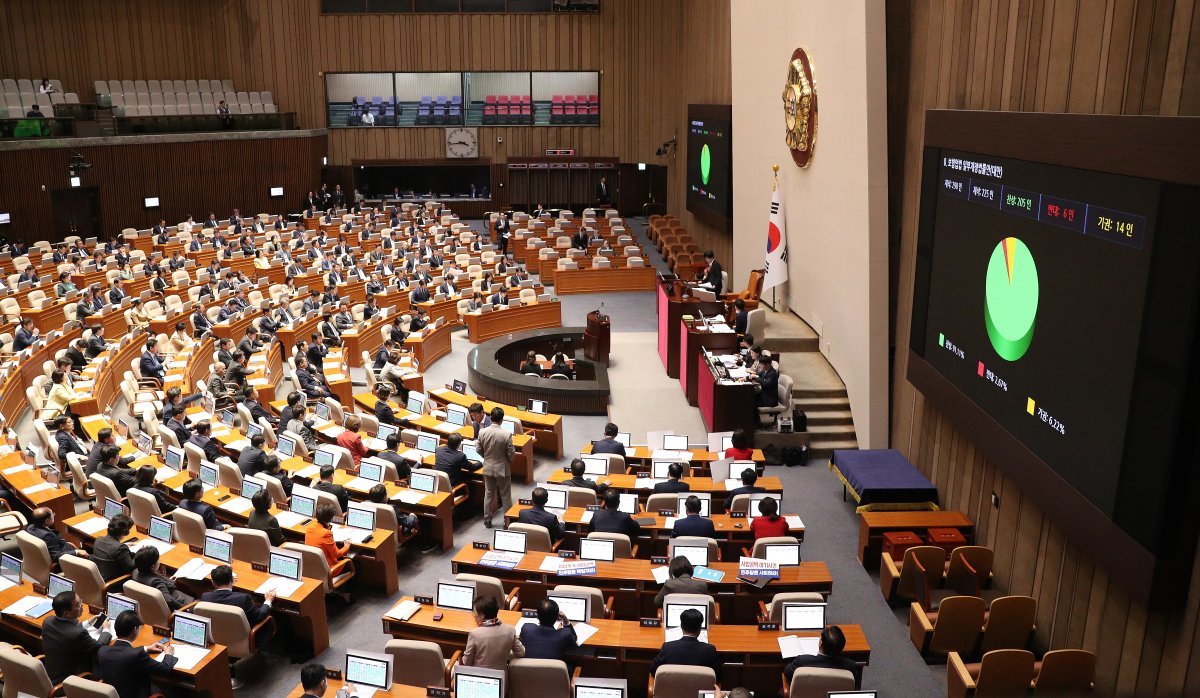Ignition interlock device bill
Actual loss insurance simplification method
How to prevent school violence
Starting as early as the end of next year, drivers who are caught habitually drunk driving will be required to install a drunk driving ignition interlock device on their vehicles. The National Assembly passed a partial amendment to the Road Traffic Act aimed at introducing an ignition interlock device at the plenary session on the 6th.
An ignition interlock device is a device that determines whether a person has been drinking by breathing in before starting the car. If you drink alcohol, the engine will not start.
According to the bill, if a person who has been punished for drunk driving is caught again for drunk driving within five years, his or her license will be reissued on the condition that an ignition interlock device be installed on the vehicle. It is mandatory to wear an ignition interlock device for the period of license cancellation. The National Police Agency estimates that about 22,000 people will be equipped with this device over the next five years. Installation costs must be borne by the drunk driver.
 View largerAt the 9th plenary session of the 410th National Assembly (regular session) held at the National Assembly in Yeouido, Seoul on the afternoon of the 6th, a bill to partially amend the Insurance Business Act to simplify actual cost medical insurance claims is being passed. 2023.10.6/News 1
View largerAt the 9th plenary session of the 410th National Assembly (regular session) held at the National Assembly in Yeouido, Seoul on the afternoon of the 6th, a bill to partially amend the Insurance Business Act to simplify actual cost medical insurance claims is being passed. 2023.10.6/News 1As early as next year, patients will be able to automatically claim actual medical insurance benefits without complicated procedures such as issuing documents at the hospital.
At the plenary session on the 6th, the National Assembly passed an amendment to the Insurance Business Act aimed at simplifying the actual loss insurance claim process. It has been 14 years since the Anti-Corruption and Civil Rights Commission recommended improvement of the actual loss insurance claim process in 2009.
This amendment includes provisions that allow actual loss insurance subscribers to automatically apply for insurance benefits electronically if they receive treatment at a hospital. Until now, in order to claim actual loss insurance benefits, subscribers had to obtain documents for insurance claims from a hospital or nursing facility and send them online, fax, etc.
 News 1
News 1Starting in March of next year, upon request from a student who has been a victim of school violence, the principal will be able to immediately suspend attendance (School Violence Review Committee Disciplinary Disposition No. 6) or change class (No. 7) to the offending student. Before the school violence committee takes action, it is possible for the school principal to transfer the offending student to another class at his/her discretion. The Ministry of Education announced on the 6th that a partial amendment to the ‘Act on Prevention and Measures of School Violence’ was passed at the plenary session of the National Assembly.
The amendment also includes provisions to strengthen punishment for offending students. If the offending student violates the ‘prohibition of contact threats and retaliation (No. 2)’ against the victim or reporter, punishment ranging from suspension of attendance to expulsion (No. 9) is possible. In addition, teachers are exempted from civil and criminal liability for legitimate responses to school violence or guidance on student life.
Source: Donga
Mark Jones is a world traveler and journalist for News Rebeat. With a curious mind and a love of adventure, Mark brings a unique perspective to the latest global events and provides in-depth and thought-provoking coverage of the world at large.